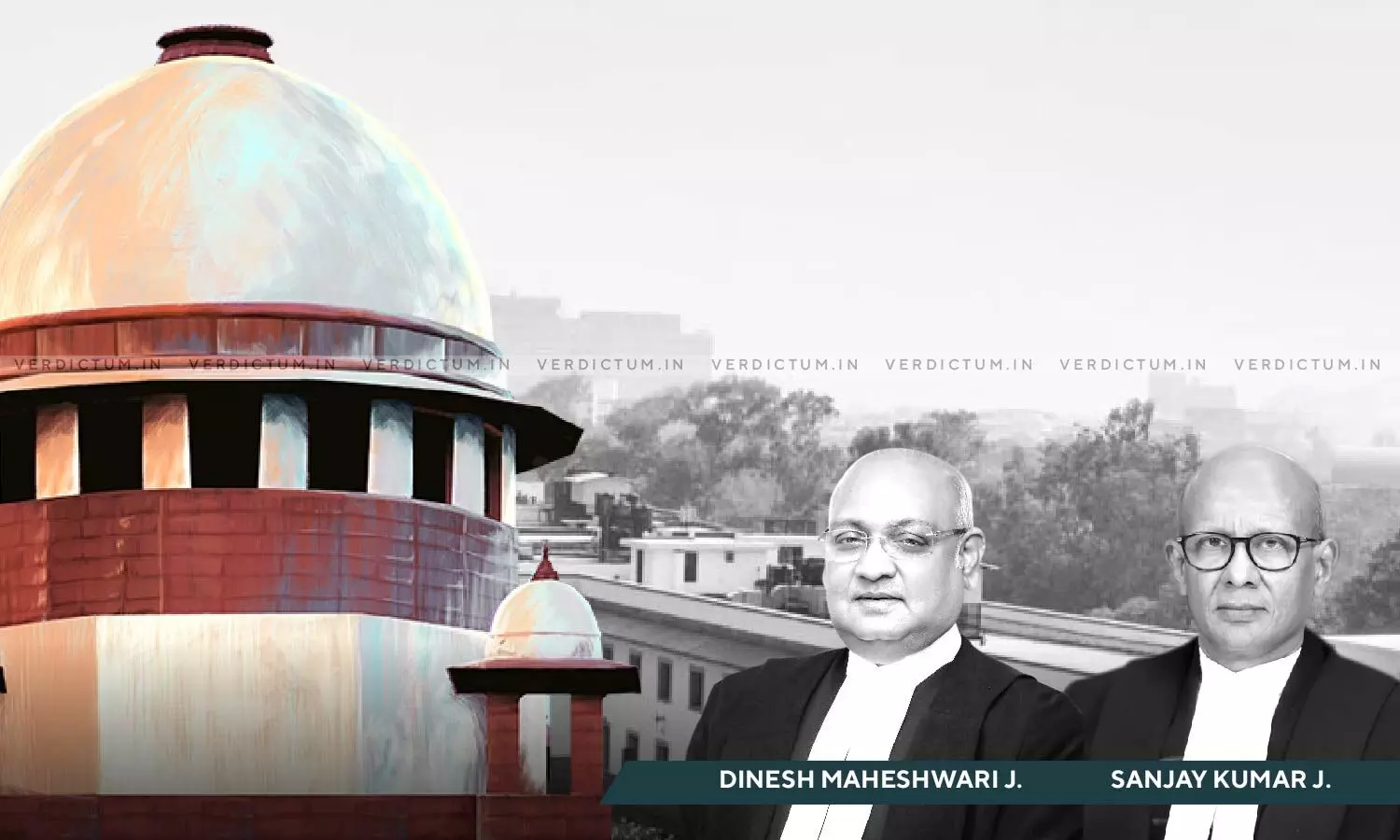
Minority Educational Institutions Cannot Claim Immunity From Regulatory Function Of Admission & Fee Regulatory Committee-SC
 |
|The Supreme Court has held that a minority educational institution cannot claim complete immunity from the regulatory function discharged by the Admission and Fee Regulatory Committee (AFRC) by claiming protection under Article 30(1) of the Constitution of India as a right under it is not absolute.
The essence of Article 30(1) was to ensure equal treatment between majority and minority institutions.
The Bench of Justice Dinesh Maheshwari and Justice Sanjay Kumar observed that “It is, therefore, too late in the day for the appellant society to again seek to challenge the validity of the Act of 2007, as the provisions of this enactment have already been read down by this Court to mean that the AFRC would have the power only to regulate the fee once the same is proposed by the educational institution itself, keeping in mind the parameters encapsulated in Section 9(1) thereof.”
The Bench referred to the decision of Apex Court in the case of T.M.A. Pai Foundation and others Vs. State of Karnataka and others [(2002) 8 SCC 481] and P.A. Inamdar and others Vs. State of Maharashtra and others [(2005) 6 SCC 537] cases and observed that “setting up a reasonable fee structure is also a component of the right to establish and administer an institution, within the meaning of Article 30(1) of the Constitution, and every institution is free to devise its own fee structure subject to the limitation that there can be no profiteering and no capitation fee can be charged directly or indirectly or in any form. It was further held that it is permissible to regulate admission and fee structure for achieving that purpose.”
In this case, the appellant had raised a challenge to the provisions of the Madhya Pradesh Niji Vyavsayik Shikshan Sanstha (Pravesh Ka Viniyaman Avam Shulk Ka Nirdharan) Adhiniyam, 2007 (the Act of 2007) which empowered the AFRC to scrutinize the fees proposed by a minority educational institution.
The issue dealt with by the Court was:
Whether a minority educational institution in the State of Madhya Pradesh was required to get the fees charged by it fixed by the Admission and Fee Regulatory Committee under the provisions of the Act of 2007.
Senior Advocate Dama Seshadri Naidu appeared for the appellant society and AAG P.V. Yogeshwaran appeared for the State of Madhya Pradesh.
The Apex Court held that the validity of the Act of 2007 was upheld by the Apex Court in Modern Dental College and Research Centre and others Vs. State of Madhya Pradesh and others [(2016) 7 SCC 353] and some provisions of it were read down.
Further, it stated that the role of the AFRC was to review and regulate the fee proposed by the education society in the interest of preventing profiteering and capitation fees.
“it is only by way of regulating the fees so proposed that the AFRC would exercise the power of reviewing the proposed fees, after giving due opportunity of hearing to the educational institution concerned. The contrary stand taken by the AFRC, as is evident from its communications to the appellant society, therefore cannot be countenanced. It is not open to the AFRC to seek to unilaterally fix the fees to be charged by the appellant society for the professional courses offered through its educational institutions. At the same time, it is not open to the appellant society to claim complete immunity in undertaking this exercise and seek exemption from any interference by the AFRC.” observed the Court.
Accordingly, the appeal was disposed of, and the appellant society was directed to necessarily submit the fees proposed by it to AFRC for the purpose of review and regulation.
Cause Title- Icon Education Society v. State of Madhya Pradesh & Ors.
Click here to read/download the Judgment